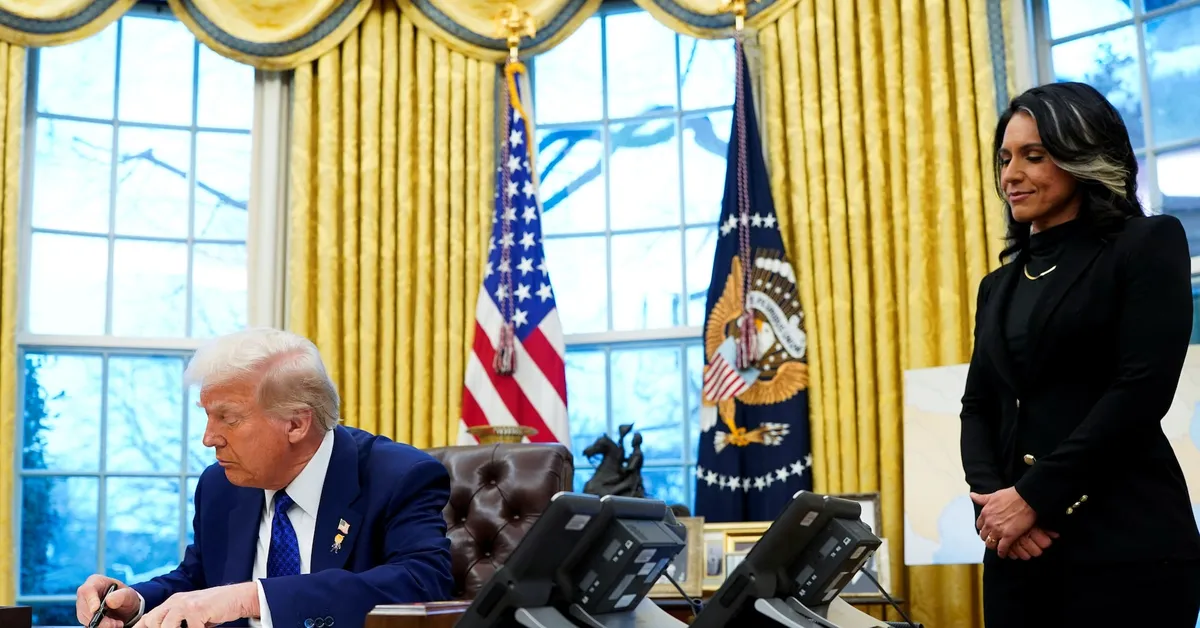
U.S. President Donald Trump publicly contradicted Director of National Intelligence Tulsi Gabbard on June 17, 2023, during his return from the G7 summit in Canada. This marked the first time Trump openly rejected the assessment of his top intelligence official in his second term. Gabbard had claimed that Iran is not in the process of building a nuclear weapon, but Trump asserted otherwise, aligning himself with Israeli Prime Minister Benjamin Netanyahu’s rationale for recent airstrikes on Iranian nuclear and military sites.
As he spoke to reporters aboard Air Force One, Trump was asked about Iran's proximity to developing a nuclear weapon. His response was unequivocal: "Very close." When reminded that Gabbard had testified to Congress in March, stating that U.S. intelligence agencies believed Tehran was not actively pursuing a nuclear warhead, Trump dismissed her comments, stating, "I don't care what she said. I think they were very close to having one."
Trump's remarks echoed his previous disagreements with U.S. spy agencies during his first term, particularly regarding their analysis of Russia’s interference in the 2016 presidential election and his acceptance of Russian President Vladimir Putin’s denials. In a response to Trump's statements, the Office of the Director of National Intelligence referenced a post by a CNN reporter on social media, indicating that Gabbard and Trump shared a similar viewpoint on Iran’s nuclear program.
During her testimony, Gabbard also expressed that U.S. intelligence agencies did not believe that Iran's supreme leader, Ayatollah Ali Khamenei, had ordered the revival of a nuclear weapons program, which was assessed to have ended in 2003 by the U.S. and the International Atomic Energy Agency. Iran has consistently denied any intent to develop nuclear weapons, asserting that its uranium enrichment program is solely for peaceful purposes.
A source familiar with U.S. intelligence reports informed Reuters that Gabbard's assessment had not changed, emphasizing that U.S. spy services estimated it could take Iran up to three years to construct a warhead capable of targeting a specific location—a finding initially reported by CNN. However, some experts suggest that Iran might be able to develop and deliver an untested crude nuclear device in a significantly shorter timeframe, though there would be no assurance of its success.
Trump has a history of rejecting the conclusions of U.S. intelligence agencies, which he and his supporters allege—without evidence—are part of a "deep state" conspiracy against his presidency. Gabbard, a staunch supporter of Trump, has also voiced similar claims regarding the integrity of U.S. intelligence services.
In summary, Trump's recent statements about Iran's nuclear capabilities highlight his ongoing conflicts with the intelligence community and reflect his alignment with Israel's aggressive stance on Iranian nuclear developments. This incident underscores the complexities of U.S. foreign policy as it relates to Iran and the broader implications for international security.